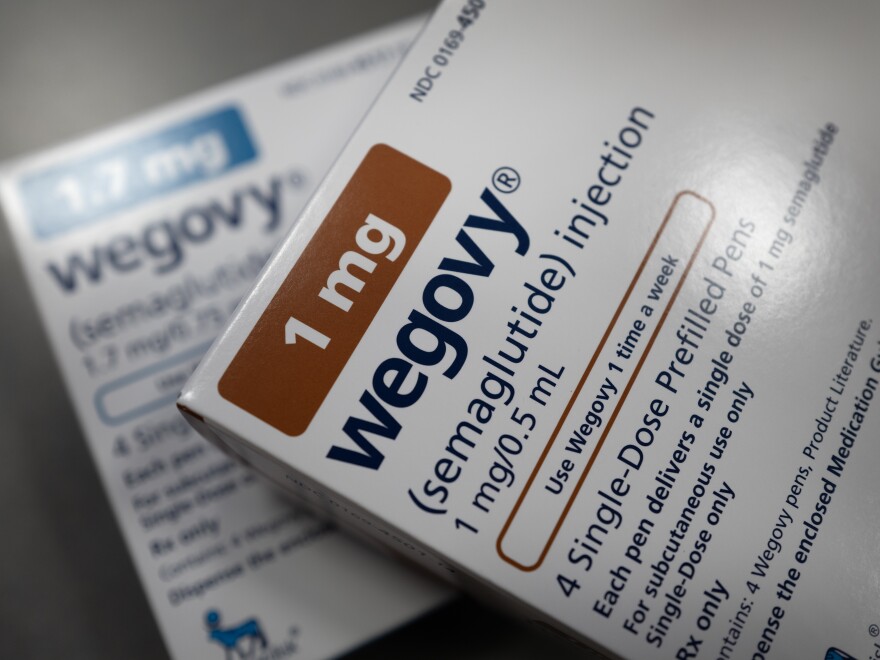Tuesday saw a more than 20% decline in Novo Nordisk’s stock after the firm lowered its outlook for its main obesity medication.
Sales of the company’s obesity medication, Wegovy, are predicted to increase by no more than 14% this year, the company said prior to the opening of the markets. This is a decrease from its May 7 projection of up to 21%.
The business points the finger at less expensive substitutes produced by compounding pharmacies, which are permitted to create what are effectively counterfeit medications when supplies are limited. A surge in compounded versions of Wegovy and Ozempic, a diabetes medication commonly given for weight loss, was made possible by their placement on the Food and Drug Administration’s drug shortage list.
The FDA decided earlier this year that the Wegovy scarcity was excessive. However, a few compounders are testing the legal system. By adjusting dosages or adding vitamins, they are personalizing obesity medications for patients.
In an effort to stop the practice, Novo Nordisk claims to be “pursuing multiple” measures, “including litigation.”
Patients whose needs cannot be satisfied by currently approved medications are usually assisted by compounding pharmacies. The FDA does not approve the compounded medications, nor do they qualify as generics. Rather, compounding pharmacists, who are primarily subject to state-level regulation by pharmacy boards, customize medications for specific patients who require them.
A doctor could issue a prescription for a compounding pharmacist to create a medication in liquid form, for example, if an older patient is unable to swallow a pill.
On Tuesday, Novo Nordisk also revealed Maziar Mike Doustdar, a 33-year veteran, as the company’s new CEO. He will take over for Lars Jorgensen, who was set to leave in May.
Doustdar promised efficiency, growth, and shareholder value during a Tuesday morning call with investors. “Now, the fact that my announcement comes right after the guidance update, well, it just makes the mandate ahead even more clear,” he said.
However, Novo Nordisk and its rival Eli Lilly have misrepresented compounding pharmacists, according to Scott Brunner, CEO of the Alliance for Pharmacy Compounding.
In an email to NPR, he added, “GLP1 compounding is demonstrably not illegal, though one could argue that saying so gives Novo a handy excuse for having to cut its earnings forecast.” “The Food, Drug, & Cosmetic Act permits the use of custom-compound drugs where a prescriber determines that a patient will benefit greatly from a custom formulation that is not commercially accessible. Not just GLP1s, but any medication that satisfies the requirements for compounding is subject to that jurisdiction.
Rena Contisay, a health economist, believes Novo Nordisk’s predicament is “not surprising.”
According to Boston University professor Conti, “compound pharmacies have [engaged in] aggressive marketing and other techniques to increase profits, which has resulted in a dramatic increase in compounding sales this year.”
She claims that by offering reduced vials to customers who aren’t utilizing their insurance, Eli Lilly, Novo Nordisk’s rival and the manufacturer of Zepbound, has also been attracting new clients. They are now employing the brand instead of the compounded versions.
Eli Lilly, CEO In March, David Ricks told NPR that over 100,000 customers purchase Zepbound directly from Eli Lilly via its website each month.
According to the firm, Novo Nordisk’s attempt to offer Wegovy directly to customers who pay with cash hasn’t gone as well as planned.
“The Wegovy penetration within the cash channel has been lower-than-expected as unsafe and unlawful mass compounding continues,” Novo Nordisk stated in a statement released Tuesday morning. NovoCare Pharmacy was introduced via this channel in March 2025. Together with about 20,000 weekly prescriptions via the retail cash channel, Wegovy prescriptions through NovoCare Pharmacy (including TeleHealth partnerships) total about 11,000 weekly prescriptions.
Copyright 2025 NPR






